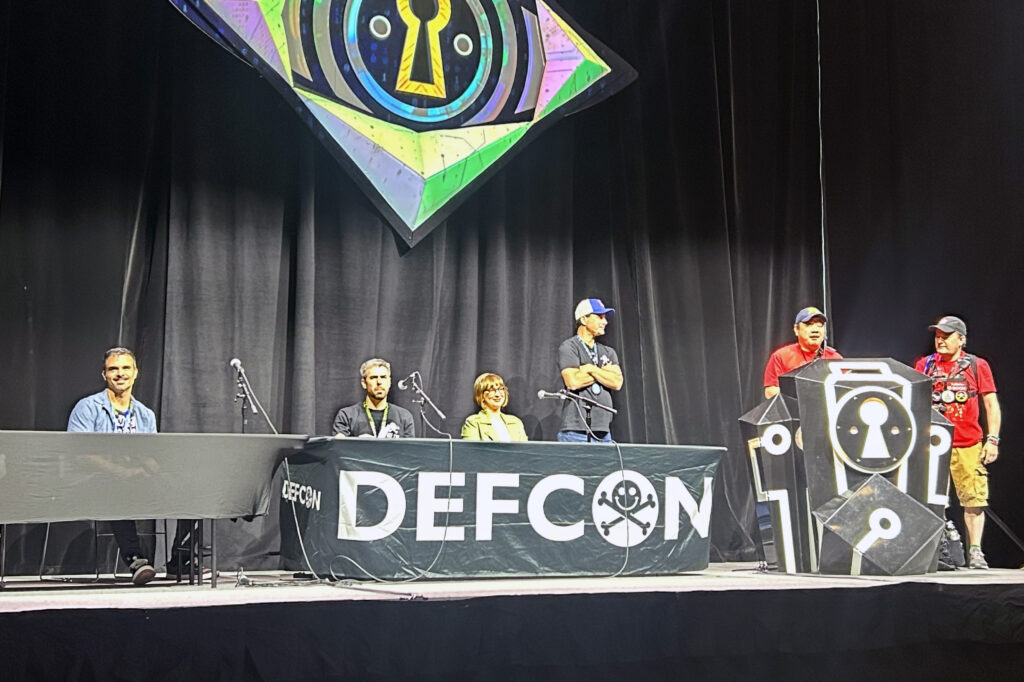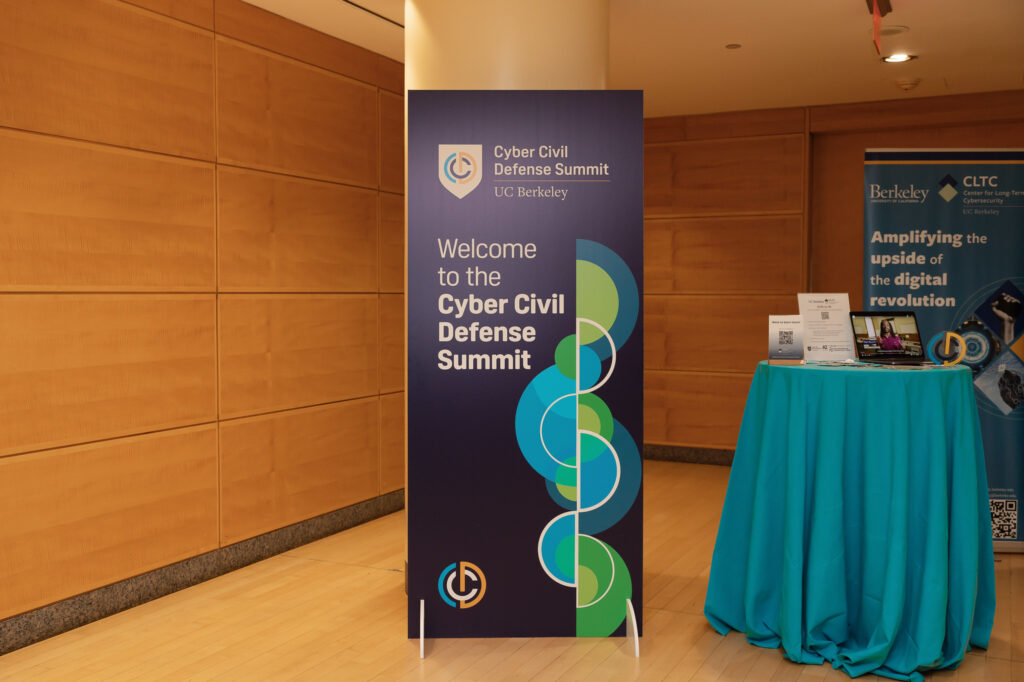Citizen Clinic, a groundbreaking program run by the University of California, Berkeley’s Center for Long-Term Cybersecurity, partnered with the UC Berkeley Graduate School of Journalism in the fall of 2020 for a course that introduced advanced cybersecurity training as a core element of professional journalism instruction for first-year graduate students.
Working together in the Berkeley Journalism Master’s degree required course J200: Reporting the News, in a section entitled “Covering Extremism,” Citizen Clinic fellows and Journalism faculty wove basic instruction in reporting and writing with training in cybersecurity strategies and tactics for reporting safely and with greater depth. The course and this instruction arose out of a recognition of the rapidly increasing challenges facing journalists who conduct investigations in the online world. Student-journalists in this section learned how to protect the integrity of their investigations by building defenses against cyberattacks, by taking steps to avoid illicit surveillance, and by being prepared to counter other threats posed by private or public actors who may seek to conceal wrongdoing by intimidating journalists. The cohort of 15 students covered stories about extremist groups — an important but high-risk beat — throughout the tense 2020 election season.

“Modern journalists may face significant threats to their personal wellbeing and private information, and that of their sources and partners,” says David Thigpen, lead instructor of the course and a former Time Magazine reporter who directs UC Berkeley’s undergraduate journalism program. “Digital security is an evolving but essential skill for journalists to effectively and safely share critical information with the public. Working together, we’ve developed a curriculum to teach the next generation of journalists skills that will enable them to accomplish their missions to deliver critical news and information to the public safely and securely.”
The course provided a group of 15 graduate journalism students who were actively investigating extremist groups (including Proud Boys and Boogaloo Bois, among others) with an introduction to a range of dynamic risk assessment and mitigation skills. These included online, physical, and mental health components, as well as how to adopt and adhere to a range of digital safety protocols. Instructors from UC Berkeley’s Graduate School of Journalism provided instruction in the fundamentals of story investigation and reporting, including online and open-source investigative techniques, to inform the students’ reporting on political extremism and extremist groups.
Digital security skills were interwoven into reporting workflows, and students gained hands-on experience in implementing digital security practices, such as:
- Using privacy-preserving phone numbers and end-to-end encrypted messaging for reporting;
- Generating strong passwords for their accounts and storing them securely;
- Using security keys to increase resistance to phishing attacks, the most common online threat; and
- Developing separate personal and professional online personas.

Students also learned to “dox” themselves by conducting in-depth online searches to determine what personal information about them is publicly available. Through a donation from Yubico’s Free Speech Program, students in the class were provided with physical security keys, which are widely regarded as the strongest second-factor authentication mechanism available.
“It’s important that today’s journalism students learn to build digital security protocols into their reporting workflows to protect themselves, their sources, and their investigations from online threats,” says Kristin Berdan, Research Fellow and part of the Citizen Clinic instruction team. “Our hope is that this collaboration will prepare these journalists to stay safe while taking on the important work of exposing potentially dangerous organizations.”
The instruction is a natural extension of the work of Citizen Clinic, a first-of-its-kind program that trains students to provide pro bono digital security assistance to non-profit clients. Through the “clinic” model long used in law and medicine, Citizen Clinic offers hands-on learning to a new generation of public-interest technologists, who deliver much-needed digital security assistance to under-resourced organizations. The project is supported in part by Craig Newmark Philanthropies, a leading supporter of Citizen Clinic. Founder of craigslist, Craig Newmark is a supporter and Member of the Board of the UC Berkeley Graduate School of Journalism.
The security and reporting skills learned in this section resulted in student work published in several state and national news sites, and lessons learned from this course helped to inform a recent CLTC white paper, An Evaluation of Online Security Guides for Journalists.
“We were honored to help deliver the Reporting the News course, which we hope will mark the start of an enduring collaboration between the Center for Long-Term Cybersecurity and the School of Journalism,” says Ann Cleaveland, CLTC Executive Director.
“Working together, we’ve developed an approach that both teaches the next generation of journalists the skills needed to deliver news and information to the public, and to do so safely and securely in a time of increasingly complex technical challenges to preserving digital security, privacy and safety,” says Geeta Anand, Dean of the Berkeley Graduate School of Journalism. “Journalists require this knowledge to continue preserving one of the most important pillars of our society — a free, secure, and independent press.”




